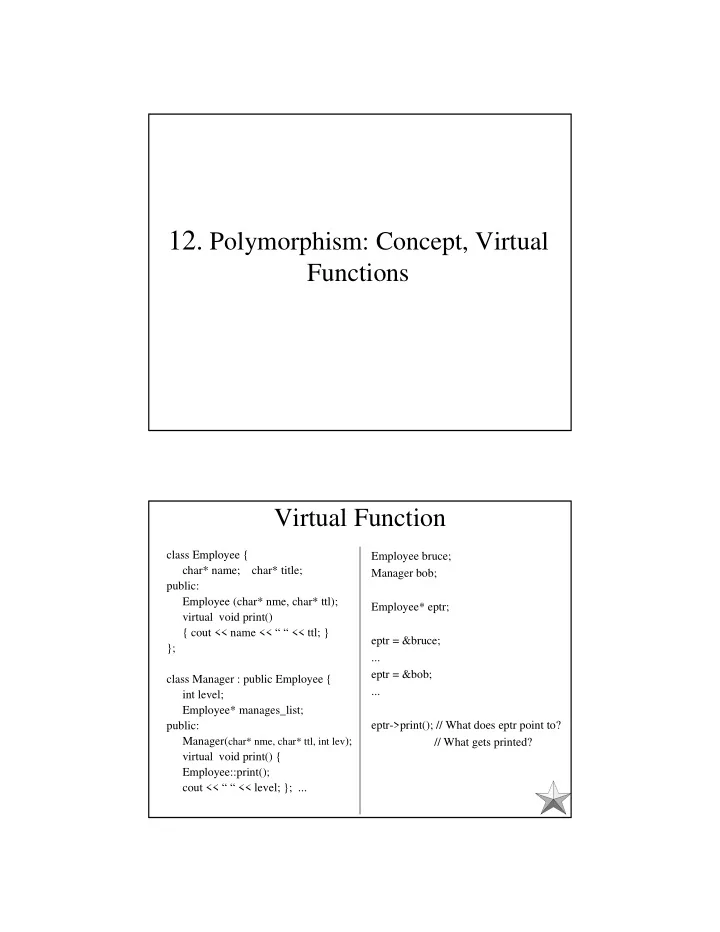

12. Polymorphism: Concept, Virtual Functions Virtual Function class Employee { Employee bruce; char* name; char* title; Manager bob; public: Employee (char* nme, char* ttl); Employee* eptr; virtual void print() { cout << name << “ “ << ttl; } eptr = &bruce; }; ... eptr = &bob; class Manager : public Employee { ... int level; Employee* manages_list; eptr->print(); // What does eptr point to? public: Manager( char* nme, char* ttl, int lev ); // What gets printed? virtual void print() { Employee::print(); cout << “ “ << level; }; ...
Binding Static - Early Binding - Determined at Compile Time Dynamic - Late Binding - Determined at Run Time Example: Employee bruce; Employee* eptr; ... static bruce.print(); //______________ dynamic eptr->print(); //______________ void SecurityCheck(Employee& emp) dynamic {emp.print(); //______________ ...} void foo(Employee theemp) static {theemp.print(); //______________... } Polymorphism: Virtual Functions Virtual functions Override function definitions in the base class The derived class may override a virtual function defined in the base class - Should have the same signature and return type Keep in mind “ Substitutability”
Overloading Vs. Overriding Overloaded Functions Overridden Functions Same Scope Different Scope Same Name Same Name Different Signature Same Signature Virtual Not Required Virutal Required Improper Overriding : Function Hiding A Derived class function hides (instead of overriding) a base class function with the same name if the derived class function has • Different Signature • Same signature & non-virtual in Base
Example of Virtual Functions class Base { Derived::f(float); public: ... overrides virtual void f(float x); Base::f(float); virtual void g(float x); void h(float x); }; Derived::g(int); hides class Derived : public Base { Base::g(float); public : ... virtual void f(float x); virtual void g(int x); Derived::h(float); virtual void h(float x); hides }; Base::h(float); Open-Close Principle “Software Entities ( Classes, modules, Functions, etc. ) should be • Open for Extension (in behavior) • Closed for Modification (of Code)”
Lab Work: Details provided on-line.
Recommend
More recommend